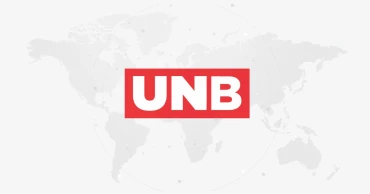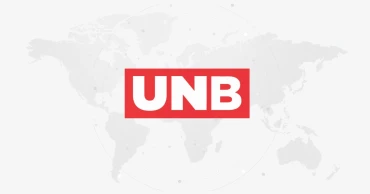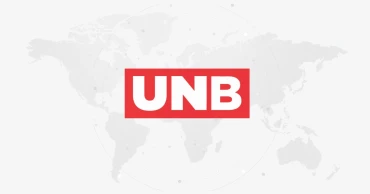oil price
Oil prices surge as stock markets tumble amid US-Israel-Iran tensions
Crude oil prices surged sharply while global stocks fell, as investors reacted to the fallout from the US-Israeli attacks on Iran.
Brent crude climbed as much as 13 percent in Asia on Monday morning before easing slightly, with the international benchmark trading around $76.48 per barrel by midday Tokyo time, up about 5 percent.
Asian equities opened lower, with Hong Kong’s Hang Seng Index down roughly 2 percent and Japan’s Nikkei 225 falling about 1.5 percent.
In the US, stock futures—which trade outside regular market hours—showed notable declines, pointing to a volatile session ahead on Wall Street. Futures tracking the S&P 500 and Nasdaq Composite both fell roughly 0.7 percent.
Iran continues to strike US assets across the Gulf after the killing of Supreme Leader Ayatollah Ali Khamenei and up to 40 top Iranian officials.
The attacks have killed one person in Bahrain, with Iraq and Kuwait reporting more Iranian raids.
Israel says it is striking at the ‘heart of Tehran’ and is launching attacks on Lebanon after Hezbollah fired a barrage of rockets at northern Israel.
Iranian state media says Israeli attacks have killed at least 20 people in Tehran’s Niloofar Square and caused damage to the Gandhi Hospital and a police building.”
Iran’s retaliatory strikes on Israel have hit the cities of Tel Aviv and Jerusalem, and killed at least nine people in the central city of Beit Shemesh.
US President Donald Trump has warned that attacks on Iran will continue until all of Washington’s objectives are achieved, and has promised to avenge the deaths of three American soldiers.
Source: Al jazeera
2 days ago
Govt reduces soybean oil price by Tk 10 per litre
The government today decided to reduce the price of edible oil, considering the price reduction in the international market, Senior Secretary to the Ministry of Commerce, Tapan Kanti Ghosh, said today (June 11, 2023).
The price of bottled soybean oil has been reduced by Tk 10 per liter to Tk 189, and loose soybean oil will now cost Tk 167 per litre.
Also read: Bottled soybean price hiked by Tk 12 per litre, effective from today
Meanwhile, the price of palm oil has been reduced by Tk 2 per litre to Tk 133, the senior secretary said after the 7th meeting of the ‘Task Force on Review of Commodity Prices and Market Situation’ at the conference room of the Ministry of Commerce at the Secretariat.
The price reduction will come into effect "within a few days," he said.
Also read: 11 proposals including import of soybean oil, sugar get cabinet body’s nod
The commerce secretary said: “Many issues were discussed in today's meeting, including the prices of soybean oil, onion, ginger and garlic. We’ve also discussed the current import situation.”
“We’ve already reduced the price of onion after the decision to allow imports,” he said.
Also read: Govt cuts soybean oil price by Tk 5 per litre, effective from Sunday
The commerce secretary also said the price of edible oil may reduce further in the next 15 days, based on the reduction in price in the international market.
According to the Ministry of Commerce, there is a demand for 20 lakh tonnes of edible oil annually in the country. Of this, the demand during the holy month of Ramadan is close to 3 lakh tonnes. Around 200,000 tons are produced locally, while the remainder is imported.
Also read: TCB to buy 1.60 crore litres of soybean oil for OMS ahead of Ramadan
2 years ago
What’s the effect of Russian oil price cap, ban?
Western governments are aiming to cap the price of Russia’s oil exports in an attempt to limit the fossil fuel earnings that support Moscow’s budget, its military and the invasion of Ukraine.
The cap is set to take effect on Dec. 5, the same day the European Union will impose a boycott on most Russian oil — its crude that is shipped by sea. The EU was still negotiating what the price ceiling should be.
The twin measures could have an uncertain effect on the price of oil as worries over lost supply through the boycott compete with fears about lower demand from a slowing global economy.
Here are basic facts about the price cap, the EU embargo and what they could mean for consumers and the global economy:
WHAT IS THE PRICE CAP AND HOW WOULD IT WORK?
U.S. Treasury Secretary Janet Yellen has proposed the cap with other Group of 7 allies as a way to limit Russia’s earnings while keeping Russian oil flowing to the global economy. The aim is to hurt Moscow’s finances while avoiding a sharp oil price spike if Russia’s oil is suddenly taken off the global market.
Insurance companies and other firms needed to ship oil would only be able to deal with Russian crude if the oil is priced at or below the cap. Most of the insurers are located in the EU or the United Kingdom and could be required to participate in the cap. Without insurance, tanker owners may be reluctant to take on Russian oil and face obstacles in delivering it.
Read: After Russian retreat, Ukrainian military plans next move
HOW WOULD OIL KEEP FLOWING TO THE GLOBAL ECONOMY?
Universal enforcement of the insurance ban, imposed by the EU and U.K. in earlier rounds of sanctions, could take so much Russian crude off the market that oil prices would spike, Western economies would suffer, and Russia would see increased earnings from whatever oil it can ship in defiance of the embargo.
Russia, the world’s No. 2 oil producer, has already rerouted much of its supply to India, China and other Asian countries at discounted prices after Western customers shunned it even before the EU ban.
One purpose of the cap is to provide a legal framework “to allow the flow of Russian oil to continue and to reduce the windfall revenue for Russia at the same time,” said Claudio Galimberti, a senior vice president of analysis at Rystad Energy.
“It is essential for the global crude markets that Russian oil still finds markets to be sold, after the EU ban is operative,” he added. “In the absence of that, global oil prices would skyrocket.”
WHAT EFFECT WOULD DIFFERENT CAP LEVELS HAVE?
A cap of between $65 and $70 per barrel could let Russia keep selling oil and while keeping its earnings to current levels. Russian oil is trading at around $63 per barrel, a considerable discount to international benchmark Brent.
A lower cap — at around $50 per barrel — would make it difficult for Russia to balance its state budget, with Moscow believed to require around $60 to $70 per barrel to do that, its so-called “fiscal break-even.”
However, that $50 cap would be still be above Russia’s cost of production of between $30 and $40 per barrel, giving Moscow an incentive to keep selling oil simply to avoid having to cap wells that can be hard to restart.
Read: Most Ukrainians left without power after Russian strikes
WHAT IF RUSSIA AND OTHER COUNTRIES WON’T GO ALONG?
Russian has said it will not observe a cap and will halt deliveries to countries that do. A lower cap of around $50 could be more likely to provoke that response, or Russia could halt the last of its remaining natural gas supplies to Europe.
China and India might not go along with the cap, while China could form its own insurance companies to replace those barred by U.S., U.K. and Europe.
Galimberti says China and India are already enjoying discounted oil and may not want to alienate Russia.
“China and India get Russia’s crude at a huge discount to Brent, therefore, they don’t necessarily need a price cap to continue to enjoy a discount,” he said. “By complying with the cap set by the G-7, they risk alienating Russia. As a result, we do believe that the compliance with the price cap would not be high.”
Russia could also turn to schemes such as transferring oil from ship to ship to disguise its origins and mixing its oil with other types to skirt the ban.
So it remains to be seen what effect the cap would have.
WHAT ABOUT THE EU EMBARGO?
The biggest impact from the EU embargo may come not on Dec. 5, as Europe finds new suppliers and Russian barrels are rerouted, but on Feb. 5, when Europe’s additional ban on refinery products made from oil — such as diesel fuel — come into effect.
Europe will have to turn to alternative supplies from the U.S., Middle East and India. “There is going to be a shortfall, and this will result in very high prices,” Galimberti said.
Read: Russia-Ukraine grain deal extended in win for food prices
Europe still has many cars that run on diesel. The fuel also is used for truck transport to get a huge range of goods to consumers and to run agricultural machinery — so those higher costs will be spread throughout the economy.
3 years ago
Soybean oil price jumps as Indonesia bans export of palm oil
The edible oil price has increased sharply in the domestic market in the last two days after Indonesia, the world's top palm oil producer, announced an export ban.
Indonesia announced on Friday a ban on palm oil exports from April 28 in a bid to stymie the soaring domestic price of cooking oil. However, analysts expect the ban to be a temporary one lasting weeks rather than months.
The soybean oil (loose) which had been selling at Tk 192-195 per litre in the capital, started selling for Tk 200 per litre on Monday.
Also read: Govt doing its best to rein in prices of essential commodities: PM
Some areas of the capital are not getting oil at higher prices even. Not only loose Soybean oil, but also bottled oil is seeing a shortage.
Buyers at Shanti Nagar Bazar complained that shoppers are creating artificial crises to sell oil at higher prices.
A retailer there told UNB that they sold loose Soybean oil at Tk 175 per liter on Sunday morning. In the afternoon on the same day, they bought the same edible oil from the wholesaler at Tk 182 per liter. On Monday morning the same oil the retailer bought at Tk 192 per liter.
Talking to UNB, an additional secretary of commerce ministry in additional charge on import cell said that the Commerce inistry is working to control the price of edible oil.
Also read: Palm oil price cut by Tk 3 per litre
The ministry will hold a meeting with business leaders regarding alternative sources of edible oil to meet the demand of palm oil, he said, maintaining anonymity.
He also hinted that a huge volume of edible oil has been imported or LCs have been opened to import, so there is no reason for price hike or to worry about shortages.
3 years ago
Edible oil price to come down soon: Law Minister
The price of edible oil in the country will come down very soon due to various initiatives taken by the government, said Law Minister Anisul Huq on Friday.
"The price of edible oil has not increased so much in the last 40 in the world like now which has affected Bangladesh" he said while addressing a special extended meeting of Kasba Upazila Awami League at Kasba Upazila Parishad Auditorium in Brahmanbaria.
The minister said the government has taken all possible steps to control prices.
He also urged the people to be patient now.
Regarding the newly formed election commission, the law minister said, “Hopefully, they will arrange the election for district councils.”
Read: LGRD minister blames soaring prices of essentials on pandemic & war
He also said, “If there is a need to amend the law, the government will try to do so as soon as possible for the sake of the ( district council) election.”
Kasba upazila Awami League vice-president Mojibur Rahman, joint general secretary Mahabubul Bari Chowdhury Montu, Kasba upazila parishad chairman Rashedul Kawser Bhuiyan and Kasba Municipality Mayor Golam Hakkani, were present at the meeting, among others.
3 years ago
Edible oil price increased in line with manufacturers' proposal
Finally putting an end to weeks of speculation and uncertainty, the Commerce Ministry has decided to increase the price of bottled soybean oil by Tk 8 per liter.
The price of bottled soybean oil will now be Tk 168 per liter. The price of 5 liters of bottled soybean oil will be Tk795, which was Tk 760 earlier.
In January, The Bangladesh Vegetable Oil Refiners and Vanaspati Manufacturers Association (BVORVMA) proposed to the Commerce Ministry to increase the maximum retail price (MRP) of edible oil by Tk 8 to Tk 168 per litre.
Also readL Edible oil price may go up further: Tipu Munshi
The ministry decided to increase the price on Sunday after a lapse of about a month in the name of verification and reviewing the application.
Commerce Secretary Tapan Kanti Ghosh told UNB that the price of soybean oil has been adjusted considering the international market price.
Meanwhile, the Ministry of Commerce delayed the decision, but soybean oil prices rose sharply in the market. According to the Trading Corporation of Bangladesh (TCB), bottled soybean oil is currently being sold at Tk155 to Tk165 per liter.
Also read: No hike in edible oil prices in 15 days, readjustment after that: Minister
Last October 19, the ministry increased the price of bottled soybean oil by Tk 7 per liter to Tk 160. Before that on May 27, the price of soybean oil was increased by Tk 9 per liter.
4 years ago
No increase in edible oil price now, govt decides after meeting with traders
The price of edible oil will not be increased until the integrated and uniform pricing system is finalized.
The decision was taken after a tripartite meeting at the commerce ministry on Thursday afternoon, said AHM Safiquzzaman, additional secretary (Import and Internal Trade).
Read: Soaring prices of key items in Dhaka turn up heat in the kitchen
Safiquzzaman told reporters that the proposal of price hike by Tk 8 to Tk 10 for per litredible oil was not approved.
At present the price of bottled soybean oil is Tk160 per litre. The traders proposed to increase the price of this edible oil by Tk 8 per liter. In that case, the price in the retail market would be Tk168 per litre. The mill's gate price would be Tk158, and the distributor price would be Tk 162 per litre.
4 years ago
Oil price hiked again
The National Price Monitoring and Fixing Committee of the Bangladesh Trade and Tariff Commission on Monday increased the prices of edible oil for a second time in a month following instability in the international market.
4 years ago
Bangladesh ‘looks unable’ to take advantage of low fuel price
Bangladesh is unlikely to be able to take advantage of the declining oil price in the global market for lack of its additional storage capacity.
5 years ago
Oil price goes negative
US oil prices turned negative for the first time in history as the demand for oil falls amid a global lockdown to tackle coronavirus pandemic.
5 years ago




.jpg)



.jpg)
.jpg)



